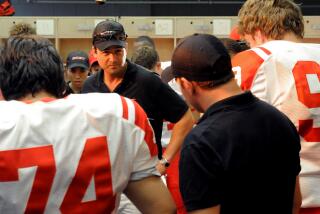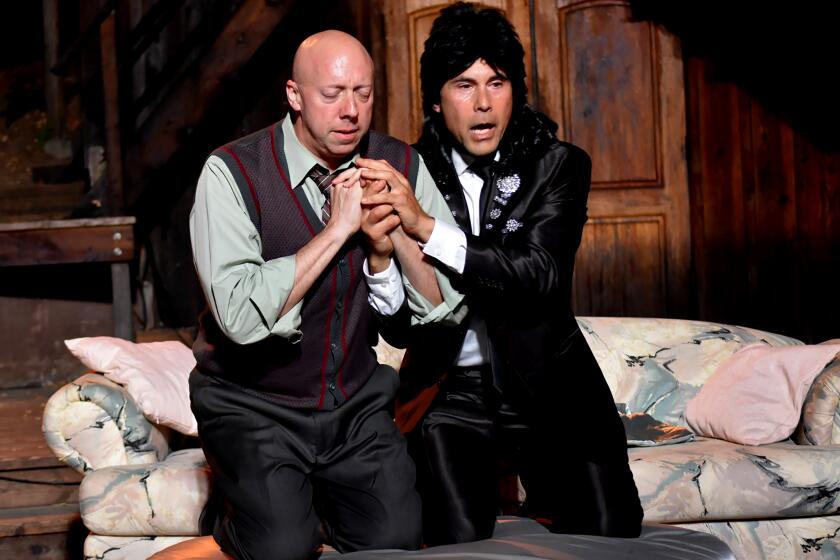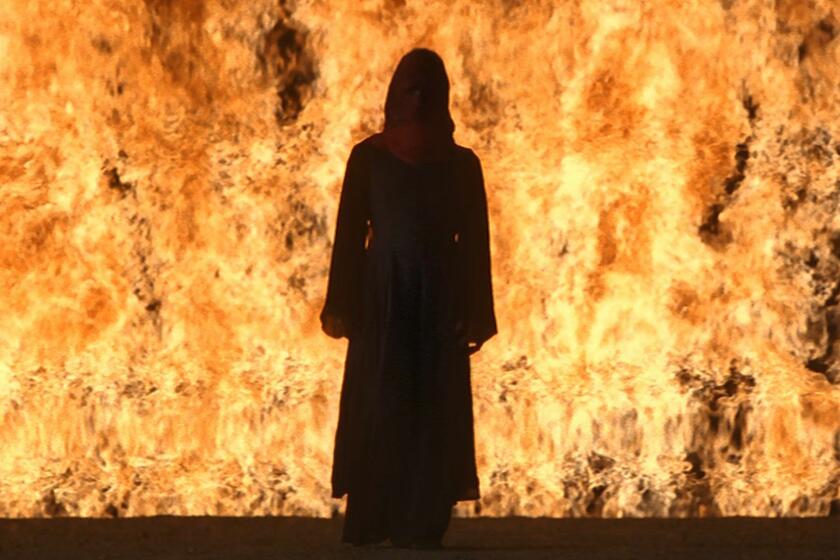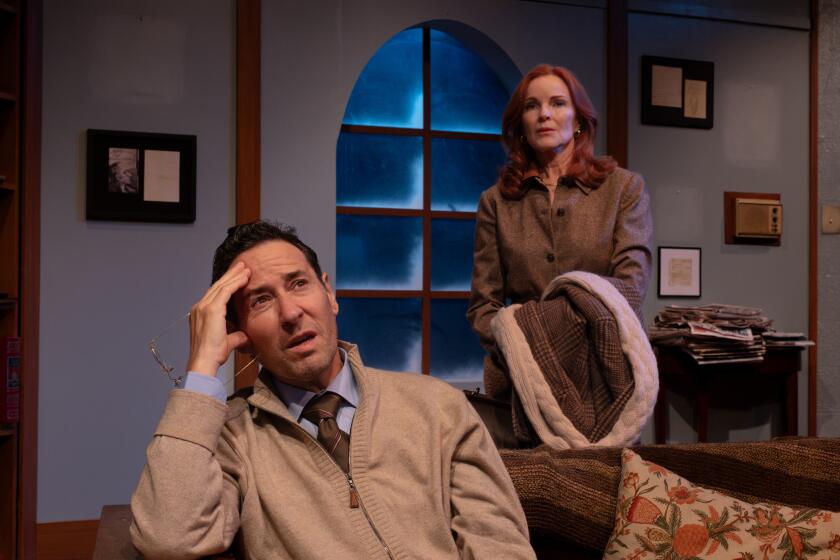DIMITROVA IN DEBUT : A TRAGICOMIC ‘TROVATORE’ IN S.F.
When grand opera is really good--heroic, dramatic, poignant, honest--it is sublime. When grand opera isn’t good, it tends to be funny.
Terence McEwen’s laissez-faire revival of Verdi’s “Il Trovatore” at the War Memorial Opera House is often hilarious.
Franco Bonisolli, the would-be super- macho Manrico, gesticulates and toys with his sword and admires himself in invisible mirrors and blasts never-ending, roof-rattling high notes at the folks who aren’t booing him and swashbuckles all over the place in boots that once actually belonged to Errol Flynn.
Ghena Dimitrova, his matronly debutante Leonora, paces about the stage in nervous agitation, clutches her throat to convey either agony or ecstasy, demonstrates swimming strokes for the customers in the balcony and, much of the time, emits mighty, swooping soprano sounds that threaten to peel the paint off the ornate ceiling.
Silvano Carroli, the evil Contedi Luna, does a lot of primitive roaring and baritonal blustering. Having recently undergone nasal surgery, he also spends a lot of time sneezing, squeezing his nostrils and clutching a ubiquitous black hanky (the color symbolism is, no doubt, fraught with meaning).
Irving Guttman, usually a reasonable stage director, confronts his cast of disparate Italianate egos, surveys the hand-me-down Germanic sets designed by Wolfram Skalicki in the quasi-abstract 1960s, and decides--wisely--that being a traffic cop is enough.
Andrew Meltzer, conducting his first “Trovatore,” has his hands full keeping things together. He tries to keep the tempos fast and the textures light. The result, for all its verve, makes Verdi’s blood-and-guts melodrama sound like a misplaced operetta that has lost something in translation.
The archaic and convoluted “Trovatore” dialogue is projected above the proscenium in awkward English supertitles--lines that produce disconcerting titters from an audience that suddenly knows more than it probably should.
Somehow, this quaint saga of vengeful Gypsies and transposed babies and clanging anvils and Oedipal devotion and lust and love and suicide and immolation in bleakest 15th-Century Spain made more sense in the 1930s when the immortal Fratelli Marxenjoyed their uniquely affectionate night at the opera.
The foregoing should not imply that the San Francisco “Trovatore” was a total loss Thursday night. It was only a near-total loss.
A young and obviously inexperienced mezzo-soprano named Dolora Zajic sang with sufficient breadth, color and amplitude to suggest that she might be a very compelling Azucena under happier circumstances.
A young basso named Philip Skinner brought solid fervor and a sense of urgency to the incidental duties of Ferrando.
Even the troubled principals had their moments.
For all his tightness and tenorial caricature, Bonisolli made a commendable effort to sing “Ah si ben mio” and his share of “Ai nostri monti” lyrically.
For all her explosive top tones and clumsy phrasing, Dimitrova proved that she can muster a semblance of pianissimo finesse when and if the spirit moves her.
Even though he bellowed the bel canto and nearly choked on “Il balen,” Carroli did sustain a certain degree of nice, primitive passion.
Perhaps next time. . . .
More to Read
The biggest entertainment stories
Get our big stories about Hollywood, film, television, music, arts, culture and more right in your inbox as soon as they publish.
You may occasionally receive promotional content from the Los Angeles Times.






